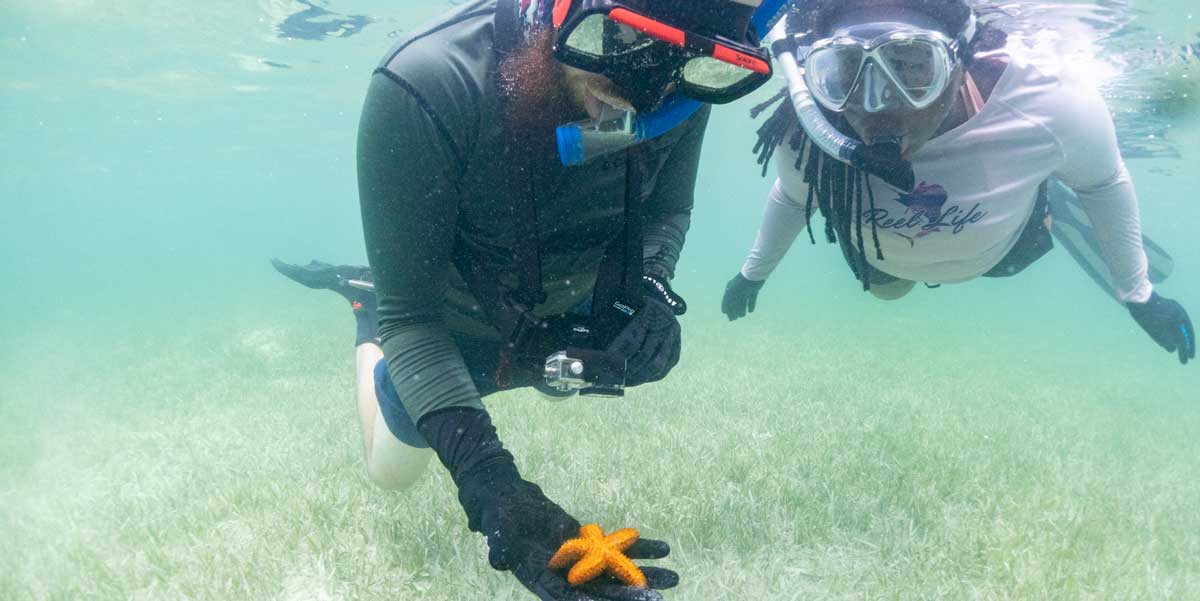
Our Research
Linking the chemical and biological diversity of epiphytic dinoflagellates in tropical oceans: Advancing global understanding on the origin of ciguatera.
EDUCATION GOALS
The educational component of this project includes five elements that cross multiple levels of education and training initiative engaging on a regional, US-wide, and International level.
K-12 Outreach
Unique and innovative educational opportunities will include at generation of at least two k-12 activities based on CiguaPIRE research that can be used in k-12 classrooms and summer science programs. The goal of these activities will be to engage and cultivate student enthusiasm and understanding of ecotoxicology with hopes of inspiring students to pursue STEM fields. These activities will focus on the chemical and biological diversity of tropical benthic ecosystems and address specific standards identified in State Next Generation Science Standards (NGSS) and will be guided by Ocean Literacy Principles.
Teacher Workshops
Development and implementation of professional learning opportunities for formal and informal educators will occur. Using the ‘train the trainer’ model, the goal will be to bring truely integrate STEM experiences to the classroom such that middle and high school students perceive the real world applications of science, and stay engaged in STEM disciplines.
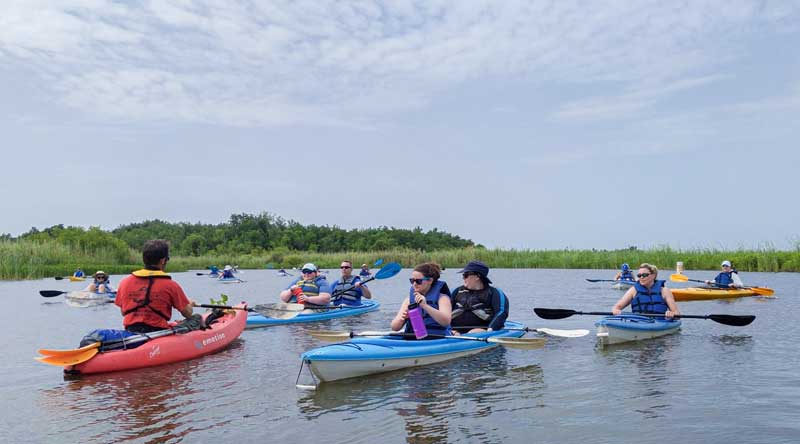
Kayaking in Mobile-Tensaw Delta
Teachers in a 2019 teacher workshop spent a morning in the Mobile-Tensaw Delta learning about the local food web
Undergraduate Training & Undergraduate Study Abroad Field Course
The undergraduate training portion of this project begins with funding for one undergraduate or co-op student in each PI laboratory each year to gain research experience. These undergraduate research experiences will provide numerous benefits to the students participating and will increase the likelihood that students will pursue graduate studies or careers in the field. Due to the global context of this research, the unique element of engaging and working with scientists from two regions will provide an early opportunity to develop communication and collaboration skills necessary to be successful in STEM fields.
A field class in tropical marine ecology will occur every other year starting in May 2019. Students (undergraduate and graduate) will experience hands-on learning experience in a tropical location (Australia, Philippines, US Virgin Islands, Cuba) through a course designed to provide students with an experience to learn about tropical marine ecosystems while being fully immersed in one for 10 to 14 days. Topics covered in the course will include the ecology of coral reef and surrounding systems, marine benthic community dynamics, chemical ecology with a focus on marine toxins, ecological aspects of Ciguatera Fish poisoning (CFP), climate change impacts on marine ecosystems, and marine ecosystem conservation. There will be a scholarship opportunity for students interested in participating in this course.
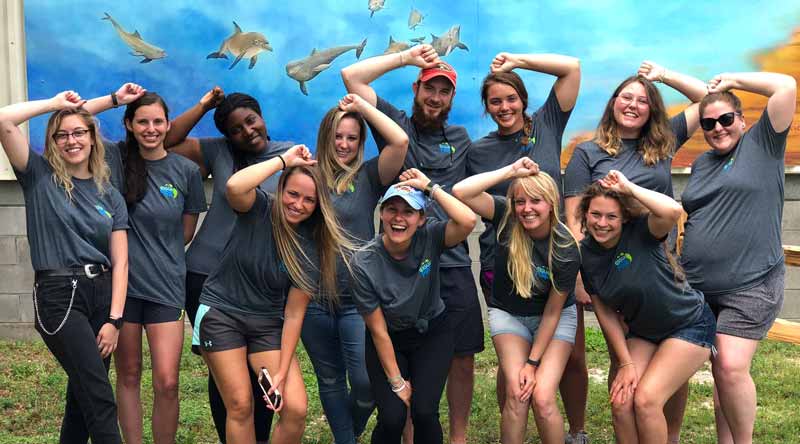
Class of 2019
Students from the 2019 class showing off the scubadivers sign for "OK"
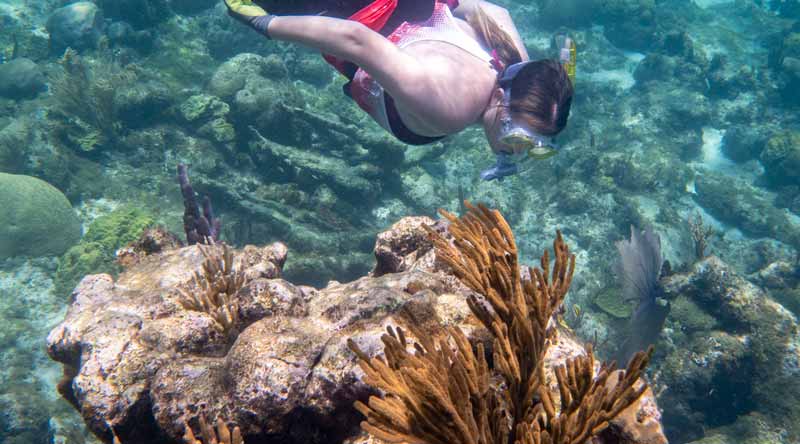
Snorkeling with Corals
Students on the study abroad class explore the extensive coral reefs of Abaco, Bahamas
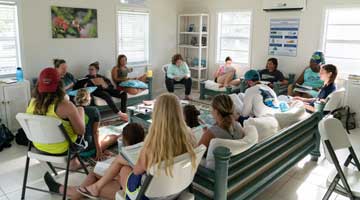
Paper Review
Along with hands-on field sampling and processing, students read, discuss, and review scientific papers.
Graduate Student Exchange
Graduate students across collaborator institutions will participate in a 6 to 12 month reciprocal exchange program where they will spend the duration of the exchange in a partner laboratory. There, the student will work on a specific project with the goal of preparing a co-authored manuscript at the end of the program. The goal of this student exchange is to prepare students to be future leaders in science by providing them an opportunity to increase their interdisciplinary knowledge while being exposed to the dynamic nature of other laboratories.
Methods Harmonization Workshop
Two methods harmonization workshops will be held over the course of the project: April 2019 at USA/DISL and Year 4 at the State Key Marine Pollution Laboratory in Hong Kong. Scientists and students engaged in CFP research around the world will be invited to participate. Field and laboratory methods will be discussed with the goals of improving and developing methods for Gambierdiscus identification, phylogenetic analysis, and toxin and metabolite analysis.